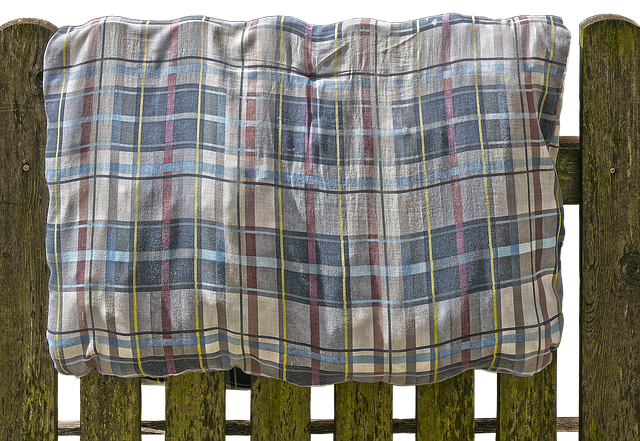In the vibrant city of New Bedford, Massachusetts, embracing eco-friendly fencing materials is not just a trend but a step towards a greener future. This article explores sustainable alternatives that transform outdoor spaces while mitigating environmental impact. From natural barriers to low-maintenance solutions, we delve into the benefits and local initiatives promoting eco-conscious landscaping. Discover how these innovative options enhance curb appeal, support local ecosystems, and contribute to a more sustainable New Bedford.
- Eco-Friendly Fencing Options in New Bedford
- Benefits of Sustainable Fencing Materials
- Natural Alternatives to Traditional Fences
- Low Maintenance Eco-Fencing Solutions
- Enhancing Curb Appeal with Green Fences
- Local Initiatives for Eco-Conscious Landscaping
Eco-Friendly Fencing Options in New Bedford
New Bedford, MA, residents now have a growing array of eco-friendly fencing options to choose from, contributing to both environmental conservation and aesthetic appeal. Traditional materials like wood often come with concerns about sustainability and treatment chemicals. Fortunately, alternative solutions are readily available, offering long-lasting durability without the environmental impact.
One prominent choice is recycled plastic fencing, known for its resilience and low maintenance requirements. These products are typically made from post-consumer waste, reducing landfill contributions and preserving natural resources. Another sustainable option is bamboo fencing, which, despite its rapid growth, is harvested responsibly to maintain ecological balance. Local suppliers in New Bedford offer these materials, enabling residents to make informed choices that benefit both their properties and the environment.
Benefits of Sustainable Fencing Materials
In an era where environmental sustainability is at the forefront, choosing eco-friendly fencing materials offers numerous advantages for New Bedford residents and businesses. These materials not only contribute to a greener planet but also provide long-lasting, aesthetically pleasing solutions for outdoor spaces. One of the primary benefits is their reduced environmental impact; natural, renewable resources like wood from sustainably managed forests or plant-based composites minimize carbon footprints compared to traditional fencing made from virgin plastics or treated woods.
Additionally, sustainable fencing can enhance local ecosystems and support biodiversity. Organic materials are less toxic and safer for both humans and wildlife, reducing the risk of ecological disruption. They also require less maintenance over time, saving residents money while promoting a more harmonious relationship with nature in their backyards and neighborhoods.
Natural Alternatives to Traditional Fences
In New Bedford, MA, homeowners and landscape architects are increasingly exploring natural alternatives to traditional fences, driven by a desire for more eco-friendly solutions. Options like live fences, where certain tree species are planted in rows to form a functional barrier, offer both aesthetic appeal and environmental benefits. These living barriers not only provide privacy but also contribute to biodiversity by creating habitats for local wildlife.
Another promising alternative is the use of natural materials such as bamboo, wood from sustainably managed sources, and recycled plastic composite boards. Bamboo, known for its rapid growth and strength, can be used to create durable fences that blend seamlessly with outdoor spaces. Similarly, reclaimed or certified wood products reduce demand for new timber, preserving forest ecosystems. Recycled plastic composites offer long-lasting durability while minimizing waste, making them a sustainable choice for both residential and commercial projects in New Bedford.
Low Maintenance Eco-Fencing Solutions
In the pursuit of sustainable living, low maintenance eco-friendly fencing offers an attractive option for homeowners in New Bedford, MA. Materials such as recycled plastic, composite wood, and bamboo not only minimize environmental impact but also require less upkeep compared to traditional wooden or metal fences. For instance, recycled plastic fences are virtually rot-proof and pest-resistant, eliminating the need for frequent painting or treatment. Composite wood, a blend of recycled wood fibers and plastic, is equally durable and can withstand extreme weather conditions without warping or fading.
These modern fencing solutions provide an aesthetically pleasing alternative to conventional fencing while promoting ecological balance. In New Bedford, where outdoor spaces thrive, eco-friendly fences contribute to a healthier local ecosystem by reducing the demand for new materials and minimizing waste. Moreover, their low maintenance nature saves homeowners time and money, ensuring that their yards remain beautiful and environmentally conscious.
Enhancing Curb Appeal with Green Fences
New Bedford homeowners are increasingly embracing eco-friendly fencing options, not just for their environmental benefits but also to enhance their property’s curb appeal. Green fences, incorporating natural materials like bamboo, recycled plastic, or wood from sustainable sources, offer a visually appealing alternative to traditional fencing. These options blend seamlessly with the surrounding landscape, creating a harmonious and inviting atmosphere.
The use of green fences can significantly boost the overall aesthetics of a property. Their organic textures and earthy tones add a touch of natural beauty, complementing both contemporary and traditional home styles. Moreover, these fences often feature unique designs and patterns, providing an opportunity for homeowners to express their individualism while contributing to a more sustainable neighborhood.
Local Initiatives for Eco-Conscious Landscaping
New Bedford, MA, has been at the forefront of local initiatives promoting eco-conscious landscaping and sustainable practices. The city’s commitment to environmental stewardship is evident in its increasing adoption of eco-friendly fencing materials. One notable trend is the use of native plant species as natural barriers, which not only beautifies neighborhoods but also supports local ecosystems. These plants require less maintenance and water, reducing the carbon footprint associated with traditional landscaping.
Community gardens and public spaces throughout New Bedford are showcasing innovative designs featuring recycled materials for fencing. Local residents and businesses are embracing these sustainable alternatives, contributing to a greener and more environmentally friendly urban landscape. Such initiatives not only enhance the aesthetic appeal of the city but also educate the community on the importance of eco-friendly practices in everyday life.
